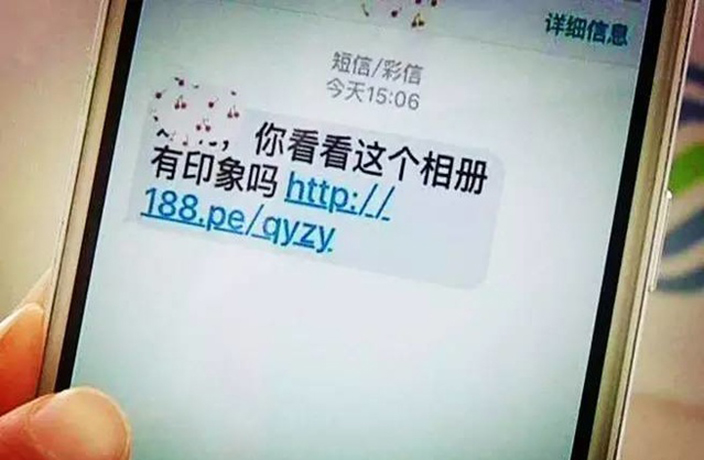With online frauds more frequent – and sophisticated – than ever, it’s important to always stay one step ahead to defend ourselves from phishing, scams and online theft. To help you, we had a look at the current state of the Chinese internet, the hidden dangers of telecom frauds and what authorities are doing to fight cybercrime.
China might seem like a port in a storm for those of us coming from places of less hectic control over public security. There is hardly a spot in Beijing (or any other major Chinese city) where one could feel uneasy or panicky about being mugged, hustled, bamboozled or hoodwinked, unless you’re knowingly stepping into one of the capital’s many markets in search of cheap gadgets.
Though the truth is, like pretty much everything else in China, local swindlers have long moved away from old-school preying on street corners to telecom fraud, reaching people through their phones and online accounts, which is safer, more lucrative and, oh god, so much more annoying.
Phonies Phone In
The number of online frauds in China has been increasing in recent years, as more and more citizens of the world’s most populous country gain access to the web. As of 2018, when it passed the 800-million mark, the number of internet users in China had nearly doubled since 2012, according to the China Internet Network Information Center (CNNIC). Out of them, a staggering 98% were mobile phone users.
In short, conditions have been ripe for an increase in online fraudulent schemes and, as a result, residents of big cities in China find themselves under a nonstop siege by telecom scammers. In 2016, government stats claimed that in the month of August alone, roughly 3.43 billion scam calls had been made in the PRC, averaging at about 111 million per day, as reported by Beijing News. The article went on to state that a person living in Beijing or Shanghai could identify a fraudulent call in merely 18 seconds, faster than anyone else in the country, according to the Telecom Fraud Situation Analysis Report published that same year.
It’s certainly not surprising. Getting a suspicious call from an unknown number registered somewhere in Henan has become such a routine affair that most capital dwellers might not even bother to pick up. But while it might look like it doesn’t take a genius to figure out the drill, con-artists keep claiming victims, nonetheless.
"A person living in Beijing or Shanghai could identify a fraudulent call in merely 18 seconds, faster than anyone else in the country"
A notable case involved a mainland Chinese woman residing in Hong Kong, who was outwitted by a scammer posing as a Beijing police officer investigating her on money laundering charges. The baffled victim ended up sending RMB980,000 (USD135,000) to the impostor. And it doesn’t end there – scammers are known to have successfully impersonated insurance agents, lawyers, telecom operators and government officials. They’ve even gone as far as to use WeChat voice messages to imitate other people and lead victims astray.
And it’s not just the ordinary folks who get targeted by tech-savvy con artists. In 2014, Chinese film star Tang Wei made headlines after she was phone scammed out of RMB210,000 (roughly USD34,000) while working on a project in Shanghai.
Life On the Line
Unfortunately, it didn’t take long before the soaring scam numbers started to yield very unsettling outcomes. China found this out in the most dramatic of ways in 2016, when a poor student from Yunnan province went as far as to take his own life after handing over RMB5,000 intended for his tuition to scammers.
In fact, criminals scrounging for easy loot often target the most vulnerable social strata. That same year, the public was shocked to learn that a young university student named Xu Yuyu, hailing from a poor family in Shandong, was tricked into transferring RMB9,900 to scammers posing as representatives of the Ministry of Education. And cases like this are not rare. Chinese officials claim to have arrested 7,700 telecom scammers in the period between 2009-2016. Most of them were targeting poor migrant laborers, the elderly, students and small-time entrepreneurs.
"The rampage of scams doesn’t do much justice to anyone, sometimes even reinforcing chauvinistic biases"
Since then, the fight against online scams has intensified. Between 2015 and 2016, two new organs, the Center for Combat Against Telecommunication Fraud and the Beijing Anti-Telecom and Cyber Fraud Center, both dependent on the Ministry of Public Security (MPS), were founded to tackle the rise in cybercrime. Last year, the MPS launched a large-scale crackdown that resulted in the uncovering of more than 130,000 plots and the investigation of 73,000 people. The MPS currently prosecutes 48 types of telecom scams ranging from email and social media fraud to identity theft and hacking, in an attempt to protect its citizens from the threat.
Henan province might be the one suffering the most, with its reputation long mired in knavish tittle-tattle. The stereotype of China’s scam province has haunted Henan at least since the Great Leap Forward, and the recent surge in telecom fraud is not helping it. Years ago, a local man got so pissed off over being disdained by fellow compatriots that he filed a lawsuit demanding RMB1,000 in damages to his reputation. In reality, however, most of the pesky calls appear to be coming from down below, like Guangdong province, or from Chinese scammers based outside the mainland and even Africa in some cases. In 2016, 45 suspected scammers from Kenya were deported to China, revealing the network behind Chinese telecom frauds to be bigger than many thought.

The joint platform 110.360.cn, involving a number of state departments and most of the largest online platforms in China, publishes a map of the areas where most telecom frauds are reported. Image via 110.360.cn
The problem of injurious prejudice goes way beyond China’s borders. The US recently saw a massive spike in Mandarin language robocalls, hitting especially hard in huge cities like New York. In an interview with the New York Public Radio, officer Donald McCaffrey of the City of New York Police Department (NYPD) estimated that Chinese scammers have stolen approximately USD3 million in the first half of 2018 alone. While targets of these attacks are, for the most part, the local Chinese diaspora and mainland Chinese students studying abroad, the scam calls are now becoming somewhat of an unflattering staple appearing in headlines of many influential publications and feeding into anti-Chinese sentiments so prevalent in the era of Donald Trump.
Expats in Peril
Inability to speak Mandarin might have come as a stroke of luck not only to many New Yorkers, but even to some expats here in China, since in order to fall for the scammers’tricks, one would need to make it through five minutes of rocket-speed Mandarin-language blabber or read an expansive text message, which, sadly, not all of us are capable of.
Although it didn’t take long for scammers to find a way around that boulder. It’s all just a variation of the good old ‘Tea Scam,’ but instead of prowling around Tiananmen, most swindlers have moved to TanTan, the popular Chinese version of Tinder, in addition to other dating and social media apps. Several Reddit users have shared their experiences with meeting some overly easygoing ladies through the internet.
"I was matched with a few girls who follow the same pattern. All of them are very beautiful ... They all have recently broken up with their boyfriends. They all follow the same conversation pattern, where they bring up how they have played some online lottery and where have found a trick to earn free money"
“The first girl that I met in person met me in the evening around 9pm and took me to a cafe of her choice. She showed up with a friend, they bought about five plates of various xiaochi, coffee and a bottle of wine,” writes one of the unlucky daters, who goes under Mister Dane on Reddit. In the end, he was left alone with a RMB4,000 bill to pay.
There are also other nefarious schemes that involve fishing for money in return for nude photos, cajoling pricey birthday gifts out of mesmerized and naive victims, asking a guy to pay for their date’s taxi fare before she even arrives, or even inviting on online match to take part in a lottery.
“I recently moved to China. I have been using Tantan and a few other apps to find a date. I was matched with a few girls who follow the same pattern. All of them are very beautiful, have many photos and stories posted over many years on their WeChat accounts which makes it look like legit,” imparts another Redditor. “They all have recently broken up with their boyfriends. They all follow the same conversation pattern where they bring up how they have played some online lottery and where they found a trick to earn free money.”
Recently, several news stories have emerged describing big dating-fraud rings uncovered by authorities. One of those, operating from Shanghai, was comprised of 28 people. Another one involved 57 people, mostly men, who were fraudsters posing as good-looking women on social media and dating apps to fool other men out of their money.
Fighting Back
Chinese authorities are irked by the abounding chaos no less than we are, and some of their initiatives seem to have borne fruit. The Ministry of Industry and Information Technology (MIIT) now obliges users to register phone numbers with their real names, allowing it to intercept around 173 million fraud calls a month and identify phony customer service numbers, 764,000 of which had been blocked back in 2016 (many online companies have started collecting ID data from their users too), as reported by Xinhua.
Authorities also requested that telecom companies regularly send billing information to users by SMS, to avoid illegal deductions. Not to mention that, as early as 2015, MIIT issued and implemented new ‘Regulations on the Management of Communication Short Message Service,’ forbidding service and content providers to send commercial messages to users without their consent or explicit request.

 Inside the Beijing Anti-Telecom and Cyber Fraud Center. Images via Beijing Anti-Telecom and Cyber Fraud Center/Baijiahao
Inside the Beijing Anti-Telecom and Cyber Fraud Center. Images via Beijing Anti-Telecom and Cyber Fraud Center/Baijiahao
Apart from increased government involvement, remarkable technological strides have been made, facilitating the national battle against bogus operators, insurance pushers, sales agents and the rest, and in July 2017, the national phone fraud prevention system was launched. It has since handled nearly 116 million suspected scam calls from home and abroad, according to the MIIT.
The MIIT also urged the three leading telecom companies to strengthen technical monitoring and to get their big-data games up to speed, something they could learn from Tencent. The tech behemoth used its big-data capabilities to compile a comprehensive report on the state of telecom scams, which showed that the fraud index in the first quarter of 2018 was 51, a significant slump from 59, 57, 58 and 56 of the previous four quarters.
Nevertheless, no matter how impressive these numbers might sound, in the bigger scheme of things, these are just minor improvements. Scams are not likely to ever completely disappear, since all crime is impossible to eradicate. Even increased government control and next-level tech don’t seem to work to the fullest.
We are forever stuck in this quixotic parable and what’s left is to simply be extra cautious.
The Swindlers’ List
What are the most dangerous telecom scams you should protect yourself from? How do they work and who do they target the most? In 2018, the Beijing Center for Combat Against Telecommunication Fraud published their list of the top most common telecom frauds. The list includes indication of the most targeted segment of the population for each scam, an index of the potential financial damage, how likely the scam is to result in a lawsuit (the ‘number of cases filed’ index) and even a ‘deception index’ (how easily the scammers can convince their victims). We’ve translated the entries for you, so that you know what to look out for.
Internet Friend Scam
Perpetrators get in touch with victims on social media platforms, usually disguising themselves as friends of friends, as an acquaintance’s spouse or even a spokesperson for the landlord. Then, they proceed to ask for money using a variety of excuses.
Most targeted: middle-aged women
Deception index: 4/5
Number of cases filed index: 2/5
Financial loss index: 4/5
False Kidnapping Scam
A friend or an acquaintance has been kidnapped. To save them, you’re asked to immediately send money to a bank account, and are warned not to call the police. Victims are usually put under extreme time pressure and end up complying to the requests.
Most targeted: parents of young children; middle-aged men and women
Deception index: 4/5
Number of cases filed index: 3/5
Financial loss index: 3/5
Transaction Error Scam
Perpetrators collect information about the victim’s online activity and then proceed to contact them, notifying that an item or service they bought is flawed or no longer available and asking the buyer to log into a website to receive compensation for the failed transaction.
Most targeted: young people
Deception index: 4/5
Number of cases filed index: 4/5
Financial loss index: 3/5
Fans for Rent Scam
The perpetrators post advertisements promising to be able to increase a brand or a shop’s visibility and reputation online with fake fans or engagement. They demand an increasing amount of money for the service but then disappear without providing it.
Most targeted: young people
Deception index: 4/5
Number of cases filed index: 5/5
Financial loss index: 2/5
Fake Close Friend/Colleague Scam Call
Perpetrators contact the victims pretending to be their boss, landlord or friend’s close colleague or acquaintance, then ask for money to help them solve a problem at work or to help with a transaction.
Most targeted: white-collar workers
Deception index: 4/5
Number of cases filed index: 5/5
Financial loss index: 3/5
Online Fake Close Friend/Colleague Scam
Same as the previous one, but this time carried out on QQ or WeChat, this scam has recently risen to prominence, in particular with people pretending to be bosses or colleagues of the victim.
Most targeted: white-collar workers; parents of young children
Deception index: 4.5/5
Number of cases filed index: 4/5
Financial loss index: 4.5/5
Law Enforcement Scam
Perpetrators approach their victims pretending to be part of a law enforcement body. They communicate to the victims that they are being investigated for a range of crimes, asking them to cooperate. They then demand a payment or threaten to extort sensitive information.
Most targeted: all age groups
Deception index: 5/5
Number of cases filed index: 4/5
Financial loss index: 5/5
How to Defend Yourself from Telecom Fraud
All of this draws a pretty grim picture, doesn’t it? Fortunately, there are a lot of instruments to face these modern types of fraud, many of which are provided by the Chinese government through dedicated institutions.
The first step is, as always, prevention. Representatives from the Ministry of Public Security suggest to always check with your bank if you receive telephone or email notifications of suspected transactions, as reported by Economic Daily. Also, be aware that companies or service providers would always notify the public through their respective press offices if a product is pulled from the market. Notifications of returns or refunds would never be singularly transmitted through a phone call. Furthermore, you should always refuse to give out personal information through the phone or on websites other than the official ones of your service provider. Neither banks nor government institutions would ask for your data through a private email.
Always refrain from connecting to unknown, open Wi-Fi networks, as some might grant access to your computer system, and avoid saving important personal information on your phone, especially photographs or scans of personal documents. Also, never share SMS confirmation codes with others. And, possibly the most important one: Don’t use the same password for all your internet-based services.
If you fall victim to a scam, there are a host of institutions you can report to. Though, if you feel you might suffer from the linguistic barrier, the best option is to contact your embassy in China and ask for help reaching the relevant authorities. While China is not currently a member of the International Consumer Protection and Enforcement Network (ICPEN), you can always report telecom frauds to the Ministry of Public Security’s dedicated portal, the Internet Crime Reporting Center.
The Chinese government, together with Tencent, also developed an online platform where you can stay up-to-date on all the most recent threats to privacy and security, and find information about reporting cybercrime. This platform is available in a user-friendly website at 110.360.cn (Chinese only).
Scam.com is a free whistleblower message board where netizens can discuss and expose scams, rip-offs and other frauds. While there are no China-specific forums, you can still find related postings and threads.
For more specific threats related to online shopping, you might want to check out alibabascam.com, a forum entirely dedicated to exposing untrustworthy sellers on the famed shopping platform. You can also check which official channels for reporting are available in your home country. Here are a few links for Australian, Canadian, British and American citizens.
Now that you have all the tools you need to stay safe, go out there and surf the web freely. With caution, that is.
And remember that the next attractive person you befriend on social media might actually be a paunchy middle-aged man from the suburbs of Shanghai trying to empty your wallet.
[Cover image via Huanqiu.com]





















0 User Comments